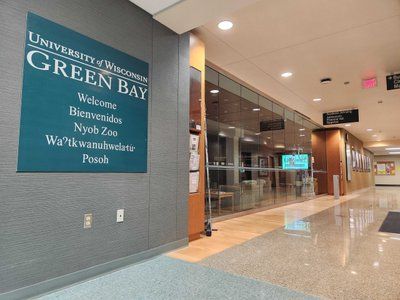By Tom Still
There was a time when Madison’s nickname, and a
well-deserved one, was “The city that can’t put two bricks together.”
Wisconsin’s capital city was legendary – and ridiculed – for
its ability to kill, delay and otherwise bureaucratize construction projects of
all descriptions, often to the advantage of cities outside Wisconsin or even
those communities close by in the Badger state.
The 60-year debate over Frank Lloyd Wright’s Monona Terrace
project, envisioned in the late 1930s as housing everything from a jail to a
railroad station, but also a convention center, ended in the late 1990s when
the current convention space opened. As predicted, it transformed the south
side of Capitol Square.
Other projects that kept the development clock ticking much
longer than expected were the Overture Center for the Arts, the State Street
Mall and Capitol Concourse, the Madison Central Library and, most recently, the
Edgewater Hotel renovation. The list includes other brick-and-mortar examples,
large and small, that ultimately added to downtown Madison’s character and
vibrancy.
Plans to redevelop what’s known as “Judge Doyle Square”
south of Capitol Square, on land bounded roughly by Wilson and Doty streets, is
the latest example of an opportunity that can’t linger.
There are four proposals to develop the area, which would
include the Madison Municipal Building (what many natives call the old post
office) and the aging Government East parking ramp. Each project brings a mix
of hotel, restaurant, parking, housing and retail space, but only one comes
with something downtown Madison could truly use – an anchor company to define
its future.
If the city embraces the proposal by JDS Development, it
could bring up to 600 jobs to the downtown as a part of the continued growth of
Exact Sciences, the publically held biotechnology company that is
revolutionizing detection of colon cancer.
The Madison area already boasts several tech-sector success
stories, not the least of which are Epic in Verona and Promega in Fitchburg.
Exact is poised to join that club with its compelling story, which began in the
mid-2000s when Kevin Conroy and Maneesh Arora moved a moribund molecular
diagnostics company from Boston to Madison on the belief it could be revived
here. They were Employees No. 1 and 2.
Today, Exact has more than 570 employees in University
Research Park and the Novation campus south of Madison’s Beltline Highway. It
is expected to grow to more than 900 by late 2016 and 1,400 in the years ahead.
The bulk of those jobs will require well-educated workers who will earn
salaries averaging $88,000 annually, which is roughly double the statewide
average.
Hundreds of those jobs would wind up downtown, marking the
first time that a major corporate headquarters put down roots there since 1975
(Verax, north of Capitol Square) and cementing the city’s efforts to brand
itself as a destination city for tech-based businesses.
Because Exact Sciences has earned the required federal
approvals for its first signature product, the non-invasive Cologuard test, it
can’t afford to wait forever to grow. The market won’t allow it to do so.
Exact’s leadership hopes to occupy about 250,000-square-feet in Judge Doyle
Square by the first quarter of 2017, which means the site selection and design
process must proceed within a month or so.
That brings us back to Madison’s history of delaying
large-scale projects, a history driven in part by general resistance to change
but also by a governance approach that has involved a host of local approval
hoops. That’s not to say this project shouldn’t be carefully examined for many
reasons, but it is to argue it cannot be studied to death.
The private portion of the JDS project doesn’t request
tax-incremental financing, which is sometimes a roadblock in Madison. The long-term
gains beyond jobs, tax revenues and economic activity include a six-time return
on public dollars, predominantly from the rebuilt city parking ramp.
Looking ahead: Exact Sciences could become the anchor for a
larger “Tech Causeway” that extends to the south side of John Nolen Drive,
where the Novation campus is located. It could spark redevelopment in the Nob
Hill area and enhance what is already an attractive gateway to downtown
Madison.
The project is important for Wisconsin, as well, because a healthy
capital city reinforces a state brand that should include cutting-edge
companies in the tech space. We love our beer and brats – but biotech is a big
part of the brand, too.
Let’s put two bricks together and move ahead with bringing
Exact Sciences to downtown Madison.





